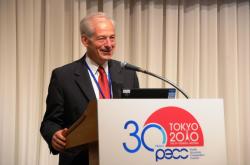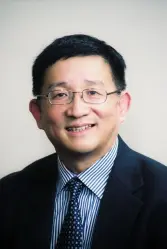

9:00 am EST - 1:00 pm EST
Past Event
9:00 am - 1:00 pm EST
1775 Massachusetts Avenue NW
Washington, DC
20036
While countless factors have contributed to China’s dramatic economic transformation, the groundbreaking economic reforms instituted by Premier Zhu Rongji from 1998 to 2003 were critical in setting the stage for China to become one of the world’s dominant economic powers. From combatting corruption and inefficient state-owned enterprises at home to engineering China’s ascension to the World Trade Organization, Zhu left behind a legacy on which successive administrations have sought to build. What similarities, differences or parallels can be drawn between Zhu’s time and today? And what lessons can China’s current leaders learn from Zhu’s reforms?
On January 9, the John L. Thornton China Center at the Brookings Institution launched the second English volume of Zhu Rongji: On The Record (Brookings Press, 2015), which covers the critical period during which Zhu served as premier between 1998-2003. In addition to highlighting Zhu’s legacy, this event also featured public panel discussions outlining the past, present and future of Chinese economic reform and its impact domestically and internationally.
9:05 am
11:45 am

9:00 am

10:20 am

11:35 am


Bonny Lin, Thomas J. Christensen, John Culver, Jonathan A. Czin, M. Taylor Fravel, Allie Matthias, Joel Wuthnow, Brian Hart, Suyash Desai +4 more
February 24, 2026

William A. Galston, Ryan Hass, Patricia M. Kim, Melanie W. Sisson, Constanze Stelzenmüller, Thomas Wright, Miles Yu +2 more
February 18, 2026

Ryan Hass
February 18, 2026